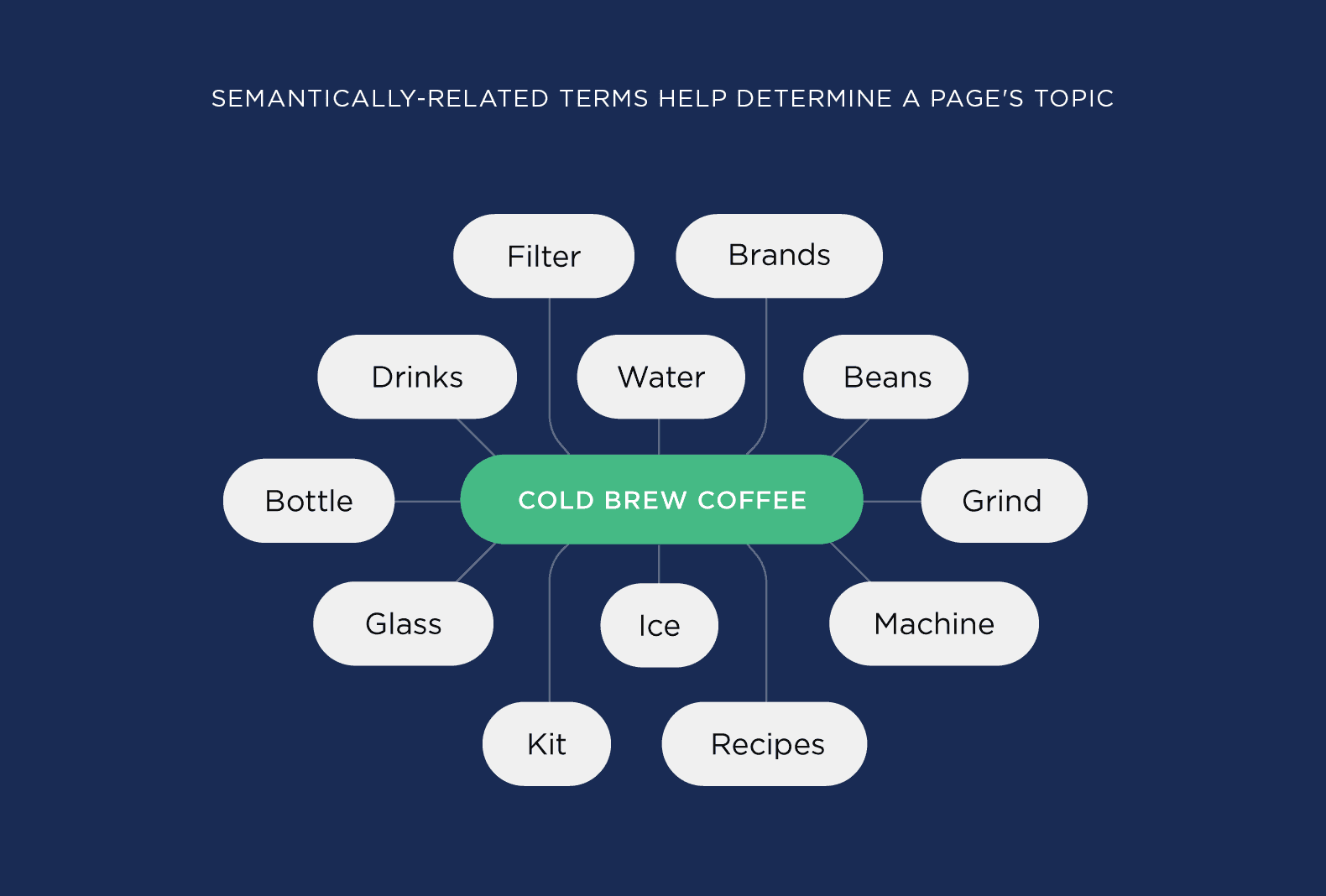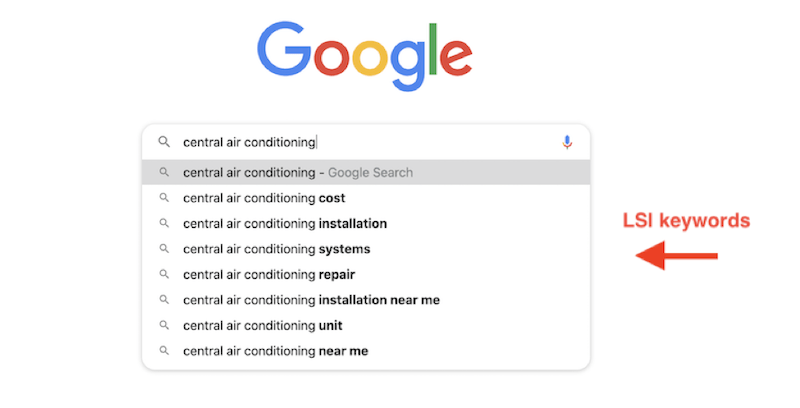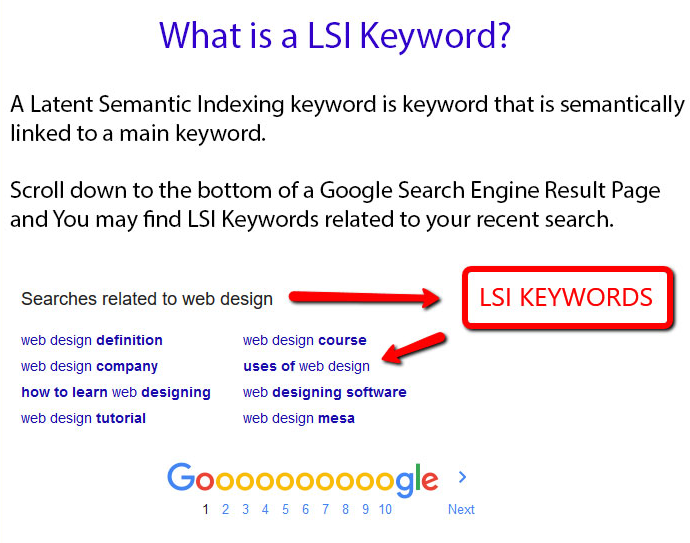Google algorithms are updated on a continuous basis, and they’ve moved beyond indexing a page based on a single term. The Google algorithm includes LSI, and including it in your SEO plan is crucial for building credibility and increasing traffic. Understanding LSI keywords will undoubtedly assist you in producing high-quality content and increasing your chances of appearing at the top of search results.
In this post, we will cover all about LSI keywords, their meaning, history and how to use them to generate leads and attract more customers.
Page Contents:
What are LSI Keywords?
LSI stands for Latent Semantic Indexing. It is a methodology that uses mathematical techniques to understand words and phrases within a piece of content. It is basically a computer program that finds synonyms based on the context of the page.
Example, if you are writing an article about Apple, it could mean fruit or company Apple. Google identifies which Apple you are talking about by analysing semantically related terms.
They are terms related to primary keyword and makes it easy for search engines and users to understand a page content. Without using LSI keywords in your posts, search engine bots would struggle to find connection between search phrases and your site content. Hence, it is advised to use LSI keywords throughout your page content.
Benefits of using LSI Keywords
- They help improve your rankings on search results.
- Adding these keywords improves your content’s relevance.
- It helps in providing a better search experience and makes it easy for visitors to find your content on web.
- It reduces bounce rate and increases click-through rate.
- They help increase conversion rate and generate more sales.
History of LSI Keywords
LSI technology was originally patented in the year 1989. However, it was implemented in Google’s search engine algorithm in the year 2004. The sole purpose of introducing this technology was to help search engines in providing best and relevant search results to users.
Previously, Google crawlers searched web pages for keywords that helped them determine the topic. The density of keywords was utilised to calculate a webpage’s rating. It was used to see if a webpage was relevant to a specific search query. However, this resulted in keyword stuffing. Marketers began to use too many keywords, resulting in content that did not provide value to readers.
As Google’s algorithms evolved, the emphasis shifted to providing value to users and improving the search experience. Google began penalising pages with keyword stuffing, and it began prioritising information that is relevant and matched the users’ search intent.
After the inclusion of LSI keywords, Google algorithm was changed. In addition to finding primary keywords on a piece of content, Google bots also look for various related keywords to understand page content at a deeper level.
How does LSI works?
Today, Google uses semantically related terms to understand page content in depth. Semantically-related words are not synonyms, but these are words that are closely related to your target keyword. Example, if you include a word ‘walking’ in your content, then semantically related words for this are shoes, cardio, tracker band, etc.
Not all synonyms are LSI keywords. LSI keywords usually consist of words and phrases that are closely related to your main keyword.
How to find related keywords using LSI?
Below, are various tools and methods you can use to find related keywords suitable for your business and industry.
Google Autocomplete
To find keywords from Google Autocomplete, you just need to enter the main keyword on the Google search bar and you will find the list that can help you select keywords relevant to your topic.
Google Related Searches
You can also type the main keyword on the Google search field and scroll down to the bottom of the page to find keyword suggestions in the Related Searches section.
People Also Ask
People Also Ask box in the search engine result page also offers you with plenty of keyword ideas related to the focus keyword.
How to use LSI keywords for best results in SEO?
Select keywords suitable for your topic: Analyse the list of keywords and then choose the ones that are appropriate to your topic. Example, if you are writing a blogpost about SEO benefits, then select keywords such as advantages of SEO, SEO merits, SEO importance, etc.
Evaluate the monthly search estimates: The right keywords may vary for different contexts and content. So, you need to select those that have enough search volume and moderate difficulty level. It is essential therefore, to evaluate the search volume, keyword difficulty score before choosing them.
Include LSI keywords into different parts of the content: Make sure to add keywords into meta title and description, headings tags, image alt text and overall content. Avoid keyword stuffing and using too many keywords without context and relevance.
Provide maximum value to the user: While it is important to include LSI keywords into your posts, do not overuse them as it reduces the content readability and makes it difficult to follow. Focus on adding value to the readers and providing them with best and relevant piece of content matching their search query. This not only helps in avoiding penalties but also improves SEO and maximizes the chance of ranking on SERPs.
Understanding LSI keywords and how to use them in your content can help you stand out from the rest and improve the quality of your content. Make it a goal to always provide clear, succinct, and accurate information to the readers that helps them find answers to their questions and solutions to their problems, especially as Google focuses more and more on enhancing user experience.
Despite the fact that Latent Semantic Indexing is still relatively new to organisations, it has proven to be effective in improving website traffic and expanding market reach. LSI keywords can enhance SEO traffic by increasing visibility. It also keeps your page from ranking for keywords that aren’t relevant. Using LSI keywords in your content will help you enhance SEO, which will help you rank higher in search results.



